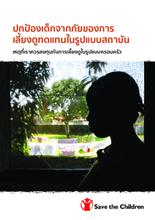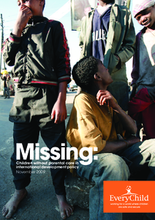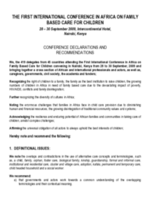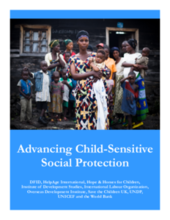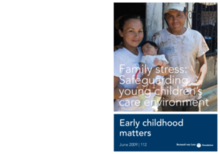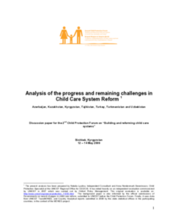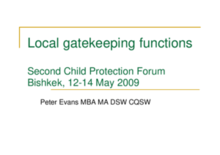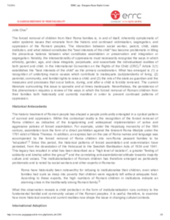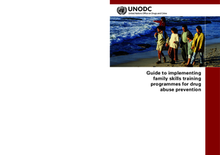Displaying 841 - 850 of 950
This report from Save the Children outlines recommendations to governments and donors in order to ensure that positive childcare and protection practices are pursued at every level.
Explores the negative impacts of loss of parental care on children. Advocates for reform for children based on assertion that failure to keep children in families, out of residential institutions and off the streets, will be another barrier to the achievement of the Millennium Development Goals
Summary of conference delegates' declarations and recommendations
Joint statement among UN agencies and NGO partners to build greater consensus on the importance of child-sensitive social protection.
Short video illustrating the ways social protection safeguards children and their families – including those affected by AIDS – at every level from communities to entire countries and beyond.
Examines the most effective ways of dealing with and diminishing parental stress, and what are the factors that contribute to children’s resilience and coping mechanisms in challenging care environments in particular contexts
Developed by the UNICEF Regional Office for Central and Eastern Europe/Commonwealth of Independent States as a discussion paper for the 2nd Child Protection Forum on Building and Reforming Child Care Systems
This presentation, conducted by Peter Evans at the Second Child Protection Forum in Bishkek from 12 to14 May, 2009, includes information on gatekeeping, including a definition, the components of gatekeeping, a flowchart of entry routes for children into institutions, outlines of assessments and intervention plans, monthly monitoring and information systems, and more.
Explores particular vulnerabilities that arise for Roma children and families in regards to care as a result of social marginalization
UNODC published Guidelines to implement family skills training programmes for drug abuse prevention in March 2009. These guidelines contain evidence of effectiveness, principles of family skills training programmes, cultural adaptation guidelines, advice on how to recruit and retain families through the programmes, practical advice on training of staff, as well as information about monitoring and evaluating family skills training programmes.

